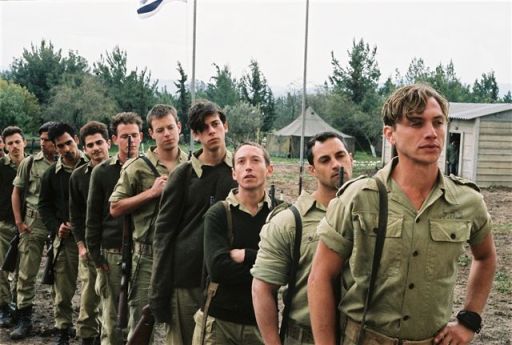
Cast: Zac Galafianakis, Keir Gilchrist, Emma Roberts
Ryan Fleck has one request of his audience before the first showing of ‘It’s Kind of a Funny Story’ – “Anyone that has seen ‘Half Nelson’ or ‘Sugar’, just wipe them out of your mind, because this is a totally different kind of film.” Those first two films from directing duo Ryan Fleck and Anna Boden were nuanced and infectious explorations of various elements of American society (drugs, class, education, and sport). Their latest film explores the world of pharmacology, psychology and mental hospitals, but this is no searing or nuanced drama… it is a teen comedy.
Craig is 16-yrs-old, and as such he is convinced that he is the least intelligent, least capable, and least attractive student at his uber-elite New York private school. He decides that the only way to deal with this problem is to throw himself off the Brooklyn Bridge; but when this plan fails to materialise, he settles for a visit to the psychiatric ward of a city hospital. Unfortunately the teen ward is closed for renovation, so Craig is entered into the adult ward for a minimum stay of five days. Craig’s initial panic is calmed by the presence of the cuddly, calming influence of ward veteran Bobby, and the bewitching beauty of Noelle, another troubled teen on the adult ward.
Queue a touching, whimsical coming-of-age tale that would have had John Hughes flicking through his notebooks to check no ideas had been stolen. The cast of larger-than-life extroverts help Craig to rebuild his self-confidence, and learn an enormous amount about what is really important in life, leading to the obligatory ‘getting the girl’ moment at the end. It is his friendship with Bobby – a chronic visitor to the ward who is in danger of losing visitation rights with his beloved daughter – that really helps Craig to come to terms with his childish problems.
The film is beautifully shot. There seems to be a conscious decision to shoot the ward scenes in a shallow depth of field so that every pore and crease of the characters faces are perfectly realised, while the backgrounds blur into a drained, messy palette of institutional beiges. It is as if the filmmakers are saying “forget the background and the ‘world’ of the film, just study the characters and fall in love with them”. This purposeful and affecting aesthetic is punctuated by wonderful animated sequences that seem to gel perfectly with the dazzling and eclectic score created bespoke by Broken Social Scene.
The costumes have been provided by Kurt&Bart, and it is when you start adding up all these friendly relationships and ‘fun’ elements to the making of this film that you realise a disappointing truth… Fleck and Boden have perhaps had a bit too much fun making this film, and have fallen short of their artistic responsibility to the filmmaking process. The film is attractive and entertaining and there are some touching moments, but it pales in comparison to their earlier films.
Part of the problem is the central character, and the fact that we are following the wrong guy around this hospital. Keir Gilchrist is faultless as the young lead, but the character just isn’t interesting enough to carry a feature film. Bobby is a kind, hopeless man who wants desperately to find a normal life with his beloved daughter; he is the true emotional heart of this story, but we are so busy following an angst-ridden teenager through the hallways that we only ever see snippets of this fascinating, troubled, and achingly pathetic man. This is even more of a waste because Galafianakis is extraordinary in the role. His comedic capabilities are beyond doubt, but his quiet power as an actor comes across in this film, and you just want to reach through the screen and hug him.
In the end, the title of the film contains an irony that may be lost on the filmmakers: this is kind of a funny story… no more, no less.





Tornando_a_casa_per_natale(17).jpg)














